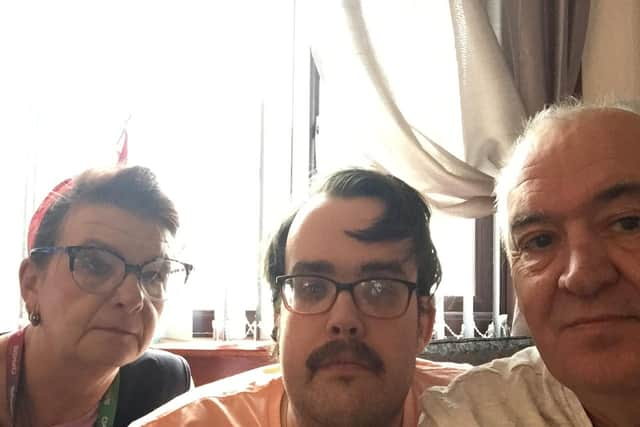National Epilepsy Awareness Week: Scottish study reveals up to 44 per cent of people with epilepsy saw increase in seizure activity during the pandemic
Epilepsy Scotland carried out the survey to understand how the pandemic has impacted people living with epilepsy.
Results show 80 per cent of people felt the pandemic impacted their mental health and well-being negatively while 44 per cent said their seizure activity increased during the pandemic.
Living with epilepsy during the pandemic
Advertisement
Hide AdAdvertisement
Hide AdWilliam Hendren – known as Billy – from Mossblown, South Ayrshire, was diagnosed with epilepsy in 2012.
He suffers from hydrocephalus and experienced a violent epileptic seizure after his shunt became blocked on September 24, 2012, which led to his official diagnosis of tonic-clonic epilepsy.
Before the pandemic, Mr Hendren had seizures “once in a blue moon”, but his mum, Denise, said that over the last year they have counted 27 stress-related ones, brought on by restrictions on everyday life.
Mr Hendren has spoken about the challenges of living with epilepsy – and additional support needs – during the pandemic.


He said: “The pandemic has thrown me off because I need to have a set routine and that just hasn’t been possible over the last year.
"It is just something we’ve got to deal with the now but it really has thrown me.
“But the most difficult thing for me is that I haven’t seen my support worker for 15 months.”
Before the pandemic, Mr Hendren would meet his support worker a couple of times a week, they would go out for a meal or have a wander around the shops, and on Fridays they would go to the pub or go bowling.
Advertisement
Hide AdAdvertisement
Hide AdMr Hendren continued: “To be honest, I didn’t expect my support to be postponed, I knew the service would be limited but I didn’t expect it to be postponed indefinitely.
"I understand why because obviously back when the pandemic was at its worst you couldn’t go out and do much but it has been really tough.”
#BeyondCovid campaign
In honour of National Epilepsy Awareness Week, Epilepsy Scotland has launched a new campaign – #beyondcovid – in collaboration with other epilepsy charities across the UK to highlight the impact the coronavirus pandemic has had on people living with epilepsy.
The online campaign will feature stories and quotes from people who are living with epilepsy, such as Mr Hendren, to raise awareness.
Mr Hendren continued: “Members of the public don’t actually know how stressful epilepsy can be for the person living with it, and their carers.
“How to recognise when somebody in the street is taking a seizure, and what to do is something that needs to be highlighted much, much more, it’s so important.
"Especially now that things are beginning to go back to normal again.”
Epilepsy Scotland Chief Executive, Lesslie Young, said: “A global pandemic, natural or economic crises always disproportionately affect the most vulnerable people in communities.
Advertisement
Hide AdAdvertisement
Hide Ad“People with disabilities and life-long conditions, including epilepsy, have been worst hit by the ongoing global pandemic.
“Our #BeyondCovid campaign will look at how the pandemic has affected people living with epilepsy in Scotland and what must be done to support people with epilepsy post pandemic.”
A message from the Editor:
Thank you for reading this article. We're more reliant on your support than ever as the shift in consumer habits brought about by coronavirus impacts our advertisers.
If you haven't already, please consider supporting our trusted, fact-checked journalism by taking out a digital subscription.
Comments
Want to join the conversation? Please or to comment on this article.
